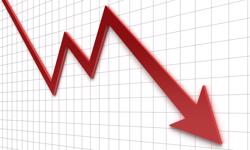
The insights report, “Looking Beyond Lockdown - Changing Consumer Behaviour in Response to Covid-19” was conducted by asking over 2,500 consumers and hosting online interviews with proprietary communities.
The results show, says Condé Nast, that despite extraordinarily challenging times, UK consumers are facing the future with a sense of hope with 91% believing the UK will return to normal by 2021, if not sooner. Results revealed that ‘hopeful’ is the leading emotion used to describe the current state of mind, with ‘optimistic’ in second place and 75% stated that they are likely or extremely likely to carry on spending as normal.
The findings demonstrated that consumers are looking to media companies for entertainment, information and crucial escapism. ‘Positivity’ is the leading thing people want to see from media companies. Consumers responded well towards advertising and spending as 90% stated that they are not opposed to advertising going ahead at this time and 81% plan to spend the same or more online in the next six months. Beyond providing a sanctuary, the media offers a vital service at this time and consumption is high, as people look to stay ahead of the latest updates and advice on a fast-moving public health crisis.
Condé Nast Britain’s “Looking Beyond Lockdown” topline findings are as follows:
- Media consumption is high: 87% have maintained or increased their use of social media; 73% have maintained or increased their use of print media and 88% have maintained or increased their time with online media websites.
- Virtual is now reality and it is becoming lucrative for some in entertainment and education: 92% have engaged with a virtual seminar and/or performance in recent weeks and 75% plan to maintain or increase their spending on in-home entertainment in the next 12 months.
- Brands are prioritising being there for their consumers and community. People will remember the household names that shared their values during this time of mass reflection and scrutiny: 82% are likely to support businesses that are “giving back” by spending with them.
- A sense of community is galvanising the nation and those who can afford to are giving back financially where they can, as small and local businesses bear the brunt of the impending recession: 90% are likely to support small businesses by spending more with them and 73% are likely to give to charity or fundraise for charity.
- Revenge spending describes the surge in sales seen among luxury goods in China after the Covid-19 lockdown restrictions were eased. For some, this self-care will come in the form of grooming or a new wardrobe, and for others it will mean accruing possessions, in lieu of experiences: 87% plan to return to the high street and shopping centres for leisure once they safely reopen.
- Routines have been upended and people have started doing things differently. This ‘first time’ paradigm has seen exponential growth in ‘how to’ content and e-learning platforms. Many will persevere with new habits, taking with them the brand loyalty cultivated from those early experiences: 74% plan to maintain or increase their spending on education and self development.
- Post-lockdown, many consumers will re-emerge with a newfound appreciation for the impact that homes have on our state of mind, and will choose to invest in the indoors while outdoor freedom remains tentative for the foreseeable: 2/3 plan to increase or maintain their spending on property.
- Athleisure, streetwear and 90s-inspired shell suits have become mainstays of catwalks and high streets for the past few years, and now these pieces have become ubiquitous necessities for comfort for those who are working from home: 69% are now looking for the same or more information on loungewear
- The lipstick effect is a phenomenon identified by economists that explains the growth of the beauty industry during times of economic crisis. Covid-19 has led to new challenges and opportunities for beauty. Masks, treatments and bathing rituals benefit from time gained at home and a renewed focus on self-care to offset anxiety: 1/4 who are using more skincare products, expect to continue post-pandemic and 73% who are using less make-up expect to revert back to their original habit post-pandemic.
- Health and wellness is one of the most promising categories for projected spend in the next 12 months, not least in a bid to stave off illness, but as people adapt their living space to accommodate indoor exercise regimes: 72% plan to maintain or increase their spending in health and wellness and 85% who are now exercising more expect to continue post-pandemic.
Jamie Rudick, Head of Research & Insights at Condé Nast Britain says, "The pandemic has disrupted every industry, sector, and sense of normalcy we've ever known. Though as we look to the next chapter, we see new values and virtues emerge – ones that will welcomingly carry on post pandemic. We explore these and their implications for brands in our latest proprietary insight's piece and we are delighted to share these findings."
The “Looking Beyond Lockdown” report demonstrates, continues Condé Nast, that the most effective and inspiring media brands are capturing both the pull of escapism and the compulsion to stay constantly and reliably informed. And while the nation is eager for normality, it shows willingness to adapt to the changing shape of commerce and to invest in new models of consumption and experience.
Brand encounters and relationships forged in the early stages of the journey into the unknown will be paramount to cultivating long-term brand loyalty and prolonged changes to routine are forcing people to redefine their values. The rise in ‘first-timers’ buying into unfamiliar brands, hobbies and behaviours creates scope for customer acquisition and the welcoming of new audiences. As the world shifts on its axis, new ways of living will conjure new dreams and demand new solutions for brands to respond to, says Condé Nast.












